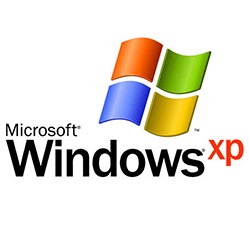The end of Windows XP: what you need to know
The end of Windows XP: what you need to know
 Microsoft recently reminded Windows XP users that this venerable operating system is being retired in April 2014.
Microsoft recently reminded Windows XP users that this venerable operating system is being retired in April 2014.
Windows XP has just passed its 12th birthday, and on 8 April next year Microsoft will end support for it. If you’re still using it, this means you will no longer receive security patches or updates — and Microsoft won’t be able to provide you with any sort of support for Windows XP.
Time to ditch Windows XP
Because Microsoft will no longer be updating Windows XP to guard against new security threats, it’s important to move away from the software before April next year.
This may pose a challenge for any companies still using Windows XP — and there are plenty of those. Despite just passing its twelfth birthday, according to Net Market Share Windows XP is still the second most popular operating system, with a significant 31% market share.
XP has been a great choice for businesses. It was relatively easy to pick up because it feels familiar to many users and supports a lot of bespoke business software. As a result, many businesses have been reluctant to upgrade.
Software has moved on
However, desktop software has come a long way since Windows XP was released in October 2001. So has hardware. In fact, Microsoft released three new versions of Windows over those 12 years: Windows Vista, Windows 7 and Windows 8.
Vista never really gained a foothold with businesses, but Windows 7 now enjoys considerable market share.
How to cope with the end of XP
If you currently use Windows XP on any of your business computers, it’s time to take action. Don’t put it off — once Microsoft drops support for Windows XP, so will many other software companies. You could soon find you’re unable to run some of your key business software.
More worryingly, in six months time you will be at an increased risk from malware and viruses, as hackers begin to target the unmaintained operating system. Consider your options now and plan to replace Windows XP before the deadline.
Upgrading Windows XP: your options
The most recent Microsoft operating system is Windows 8. It has a significantly different interface compared to its predecessors and has attracted some criticism for this, so you may be more comfortable upgrading to Windows 7, with its familiar look and feel.
There are also hardware factors to consider when you upgrade. A computer running Windows XP is likely to be as dated as the operating system itself.
Even if it can handle a newew operating system, it’s likely to be considerably slower than Microsoft intended — and this could hit your productivity. The end of Windows XP could therefore be a good time to replace your business computers, too.
Can we keep using Windows XP?
On the morning of the 9 April, your Windows XP computers will still start up as they have done for the past decade. However, the lack of support and updates — not to mention the increased threat of malware — should be enough to put you off of doing so.
Quite simply, after 8 April, the longer you hold on to Windows XP, the greater the chance you’ll suffer some sort of problem or catastrophe from which it’s hard to recover.
Microsoft is keen to see businesses upgrade, as this allows it to focus resources on developing new software, rather than maintaining older versions. However, it costs to upgrade, so there’s certainly a commercial incentive too.
In all, Windows 8 is a considerably more advanced and future-proof operating system than Windows XP. If you’re currently persevering with this old software, there’s no better time to make the leap and upgrade.
- Does your business need Windows 8?
- Will you have to upgrade to Windows 8?
- ISS it time to ditch Microsoft Windows altogether?
This is a guest post from Adrian Case, technical director at Akita IT support in Kent.




Comments
Add a comment